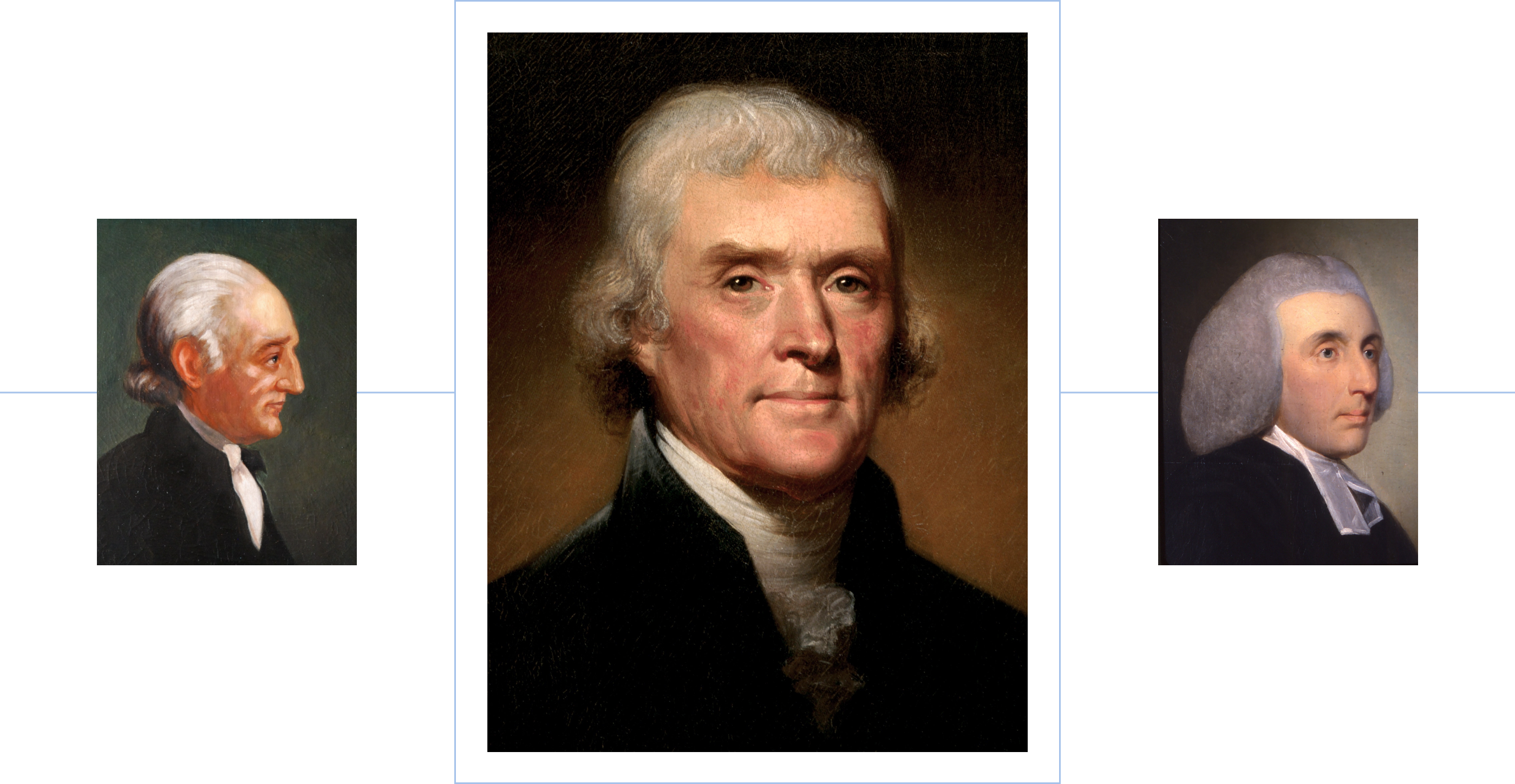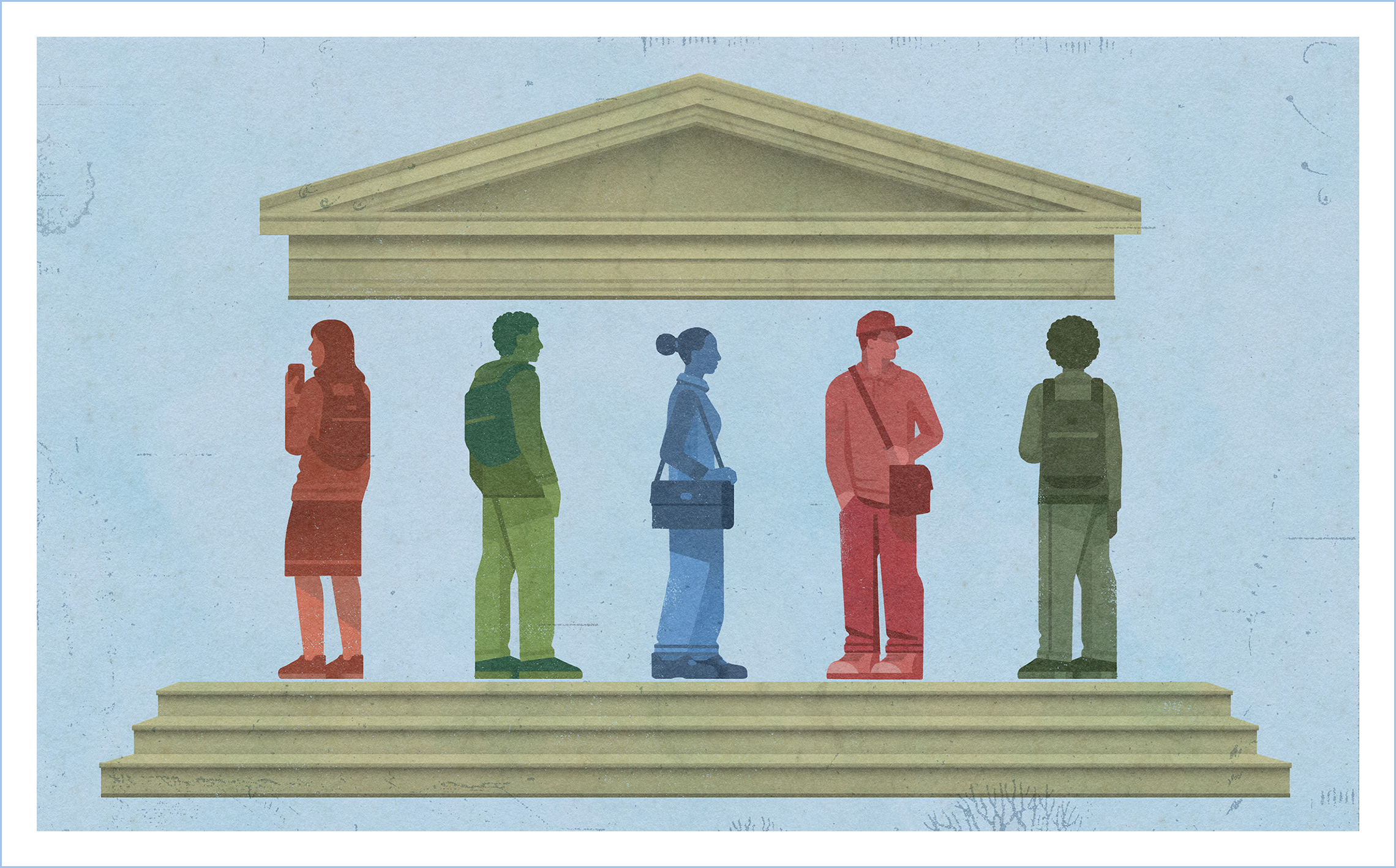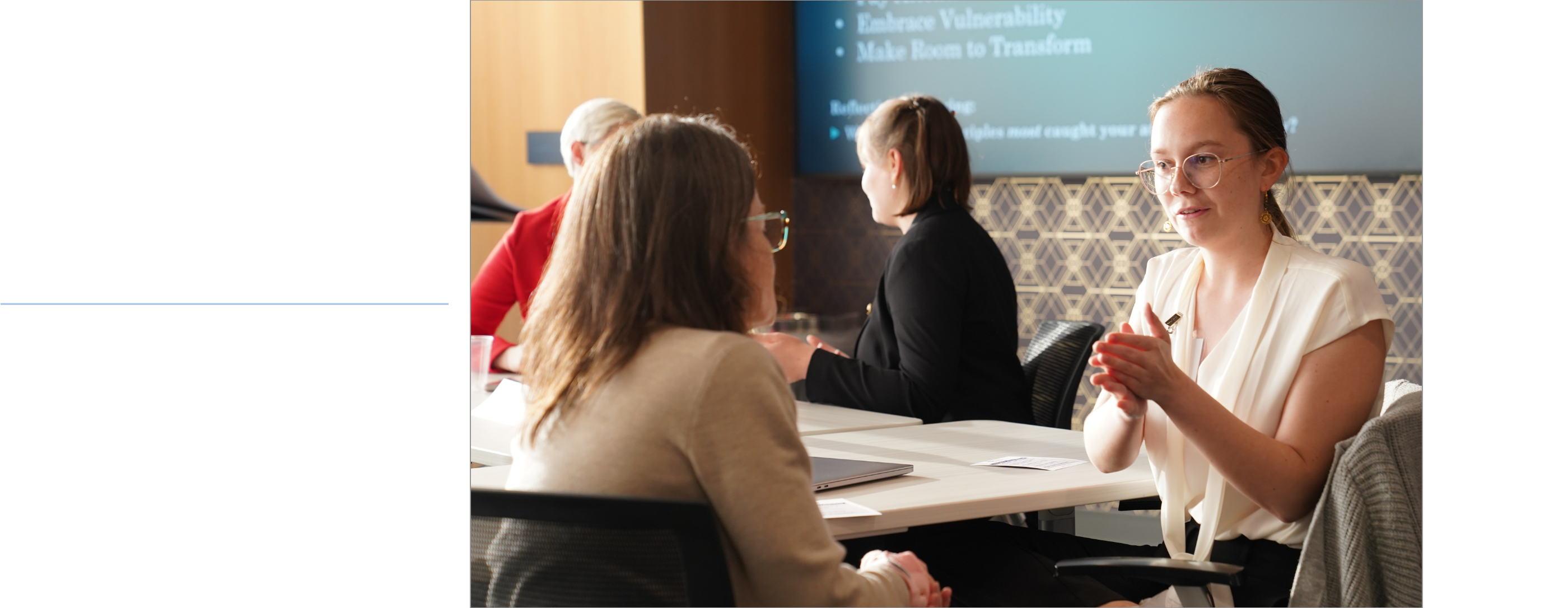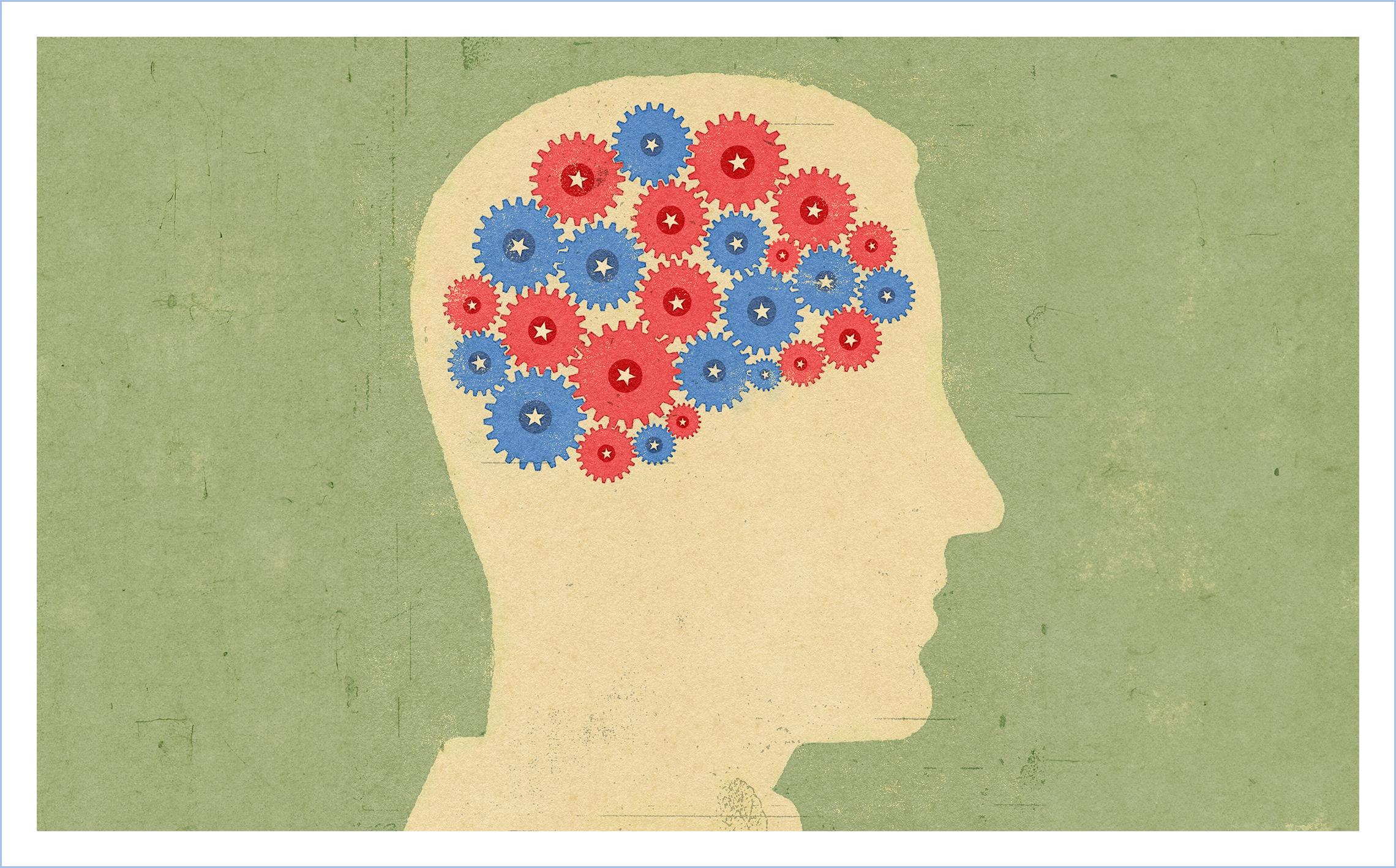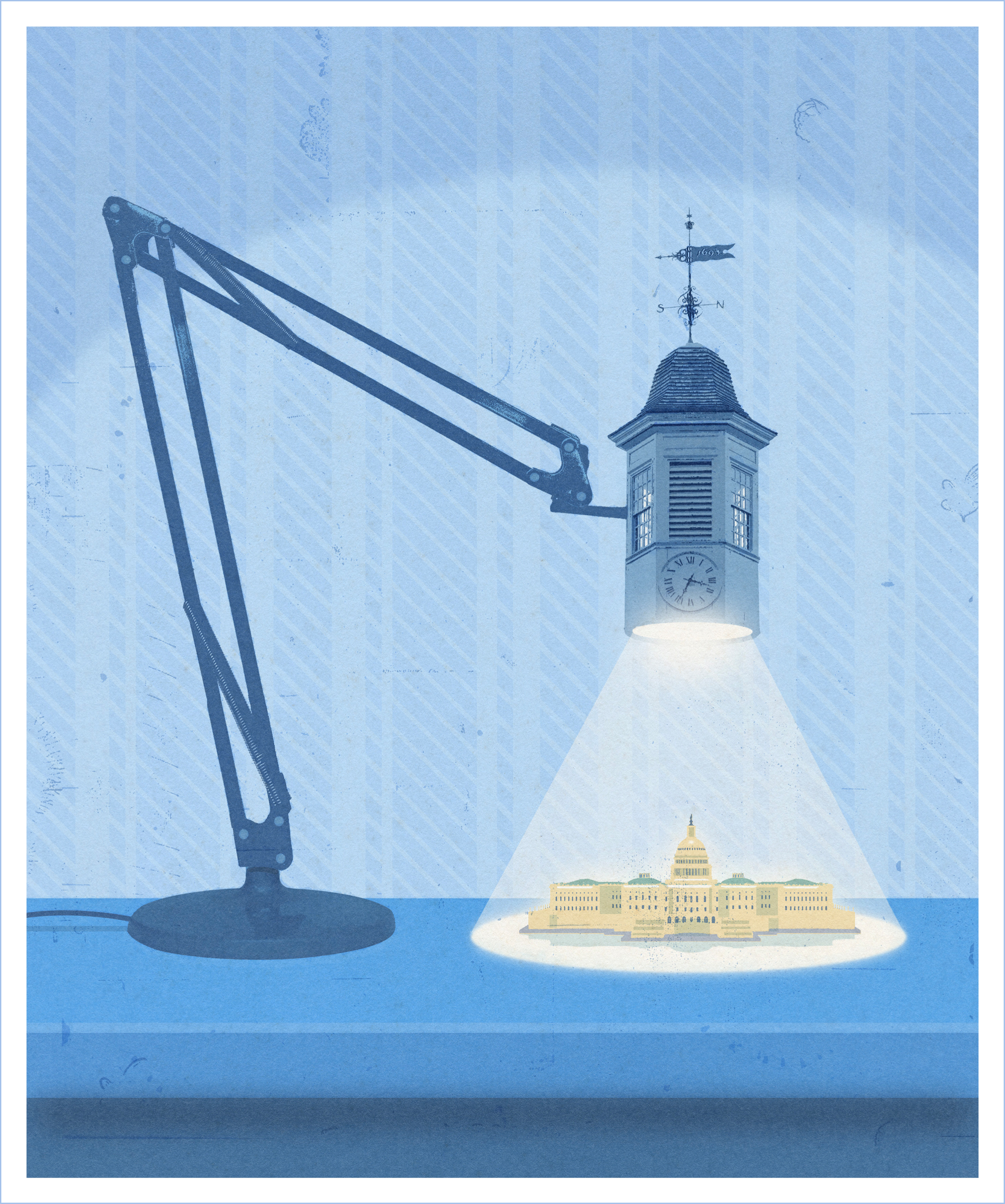Both the Bray School and the Brafferton Indian School for Native American children were operating at William & Mary during Jefferson’s time at the university. In recognition of this juxtaposition, W&M’s Strategic Cultural Partnerships office is planning lectures, courses and other events in 2026 under the theme “Education in Jefferson’s Virginia,” in collaboration with the Omohundro Institute, the W&M Bray School Lab and other partners.
“One of the Vision 2026 goals is to make sure that this nation’s origin story becomes every American’s shared story,” says Ann Marie Stock, presidential liaison for Strategic Cultural Partnerships, and Chancellor Professor of Modern Languages & Literatures.
BETTER ARGUMENTS
While gaining a deeper understanding of history and our system of government, William & Mary students are encouraged in their classes and campus programs to explore ideas, ask questions and engage in respectful dialogue.
“The role of a university is to facilitate free and open ideas in pursuit of knowledge and truth,” Dean A. Benjamin Spencer told the new class at William & Mary Law School last fall. “You are here to have your thinking challenged, not simply affirmed, and you’re here to develop the mental muscles necessary for the civil discourse that enables our free society to continue to prosper and progress.”
To emphasize the importance of free speech in the educational experience at William & Mary, a recording of Spencer’s remarks has been shared with incoming undergraduate students, faculty, staff and leadership boards at William & Mary as part of the Vision 2026 Democracy initiative, co-chaired by Senior Vice President for Student Affairs & Public Safety Ginger Ambler ’88, Ph.D. ’06, P ’24 and Dean of University Libraries Carrie Cooper Ed.D. ’24.
“The future of democracy depends on active citizens who understand its ideals,” Ambler says. “Those skills are taught and practiced here.”
First-year students have been introduced to the nonprofit Aspen Institute’s Better Arguments Project during orientation since 2021. The framework uses five principles for having better arguments: Take winning off the table, prioritize relationships and listen passionately, pay attention to context, embrace vulnerability and make room to transform. The W&M program is unique for a higher education environment, Ambler says.
“Better Arguments is a useful framework for our students and our workforce as we aim to build confidence and comfort in the act of engaging with people who have different opinions,” Cooper says.
In May, Ambler and Cooper led a session on Engaging Across Difference at the W&M Washington Center for students, faculty, staff and alumni.
Mark Strand ’26, one of about 50 participants, said the group’s fairly compact size and its diversity in age and backgrounds allowed for a lively and open discussion on questions such as whether hate speech should be allowed on the internet. Members of the group moved into one of four corners based on their initial responses, then talked about how they came to hold their views.
“Immediately I thought, ‘Hate speech shouldn’t be allowed on the internet. I’ll go to the corner for disagree or strongly disagree,’” says Strand, a public policy major, music minor and Authentic Leadership Institute fellow. “And then I heard a lot of compelling ideas about what it means to allow free speech and how we allow people to express themselves.”
He was able to apply some of the Engaging Across Difference tools during his summer internship with the National Association of Regional Councils, an urban planning organization. When writing newsletters about policy briefings, for example, “we would discuss what topics to write about and how to explain an issue in a bipartisan way.”
